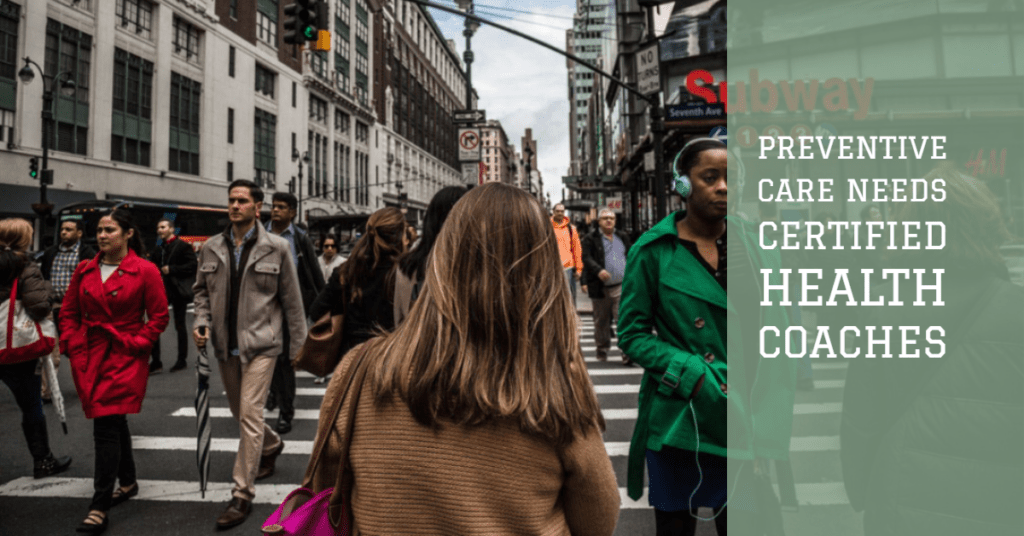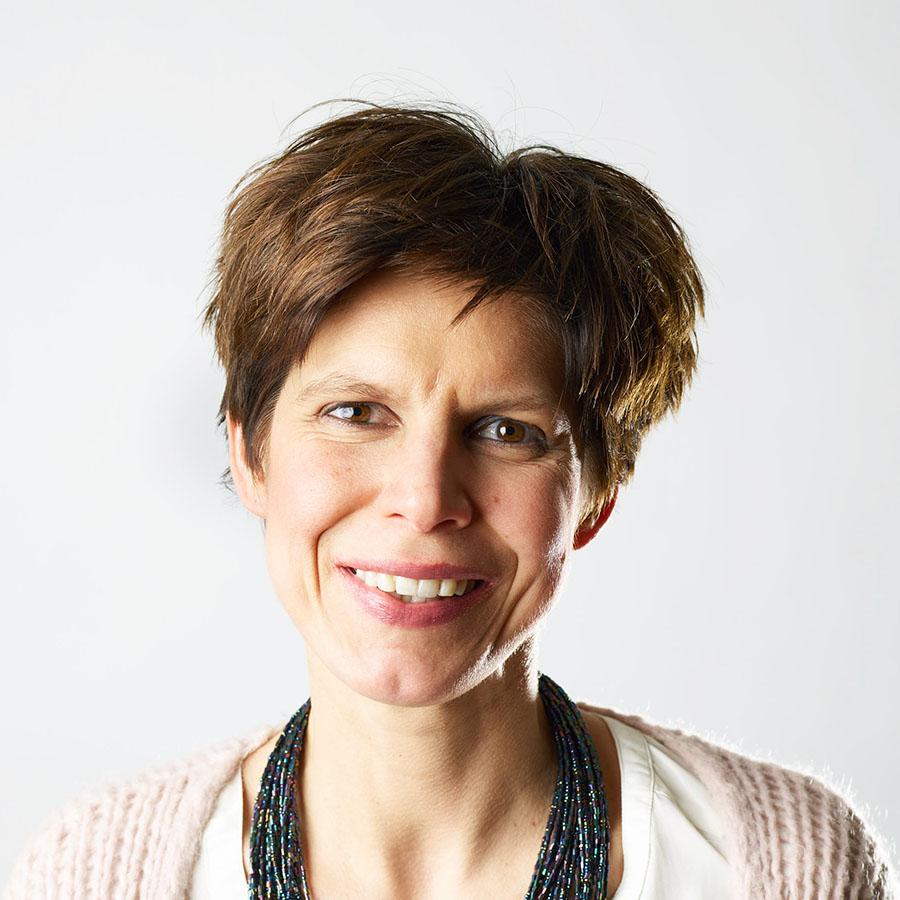Preventive care needs certified health coaches
Recently, I was at the official launch of the Flemish Association of Health Coaches (VVGC) in Bruges. Over 200 people gathered to listen to the purpose and ambitions of the professional association: they want to train, certify and support preventive health coaches. This way, VVGC wants to guarantee quality and make preventive health coaches work with exclusive protocols.
In addition, VVGC wants to develop a real community of professional health coaches, and it will organise events to put preventive health care in the spotlight. Attendees at the launch were all very enthusiastic and freely shared the passion for their work.
But not everyone shares this enthousiasm..
Some say there’s a ‘proliferation’ of health coaches going on: fitness coaches, personal trainers, food coaches, and mental coaches…you can find them everywhere. And they doubt the need for and abilities of lifestyle professionals.
Is there an invasion of health coaches? Why do we need them at all? Or even: wouldn’t it be better to ban them? After all, who is going to pay for them?
The answer is yes. Yes, we need health coaches.
Everyone worldwide agrees by now that healthcare needs to change from a mere cure system to a more preventive system. WHO, WEF, OECD, etc. have been arguing strongly in favour of this for years now.
Logical, since worldwide ageing makes us live longer, and chronical diseases are widespread. We need another lifestyle to stay healthy as long as possible thus winning quality of life in these extra years (and now).
Research has shown over and again lifestyle changes have a huge impact on the lives of healthy people as well as chronically ill people: they talk about lifestyle as medicine (Katz-2017) and lifestyle change as precision medicine (Campos-2018).
And especially millennials seem to understand this. Already in 2015, they spend twice as much on self-care essentials as workouts, diet plans and life coaching. National Public Radio in the USA called it their ‘obsession with self-care’.
But it’s very difficult to change lifestyle on your own: you need people to educate, support and help you.

Moreover today, many GP’s are frustrated because they never seem to have enough time to see their patient’s full picture: to diagnose, follow and guide them in a holistic way. Even if they want it, GP’s cannot be a real health coach for their patients all by themselves.
We need certified holistic prevention experts
Preventive care is evidence-based and cost-efficient: there is plenty of evidence available on which interventions work and which do not, at what societal cost.
Health coaches work with these insights. They followed a basic training as a master, bachelor (TGW at Howest is the only one for now in Belgium) or in professional training. They apply the insights learned on a daily basis, tailored to the needs of their clients: individuals or groups.
Guus Schrijvers: ‘Only an integrated approach, with cooperating health professionals, schools, .. seemed to work’. (Integrated care, better and cheaper, p. 122)
Health coaches are holistic prevention experts, helping other health professionals or specialising them towards prevention. They are not at all competitors, on the contrary: health coaching increases patients trust in their primary care providers.
But up till now, in Belgium and other countries, health coaching might still be too much a mix of competencies and practices. So quality is not always guaranteed.
Certification has to change that: on top of their specific basic training, health coaches will have to successfully complete a certification program at the professional association.
Coaches want certification too
And coaches themselves are asking this. The 2016 global coaching study of the International Coach Federation indicated active coaches see untrained individuals calling themselves ‘coaches’ as their biggest concern.
So yes, we need people who are trained and certified to screen a complete lifestyle, tailor a program and guide individuals and groups towards better health. Whether this is at the workplace, in schools, cities or just at home.
VVGC calculated at least 21,000 certified health coaches are to be needed in Flanders. And the need for holistic health prevention experts worldwide is being backed by professional bodies: the UK health coaches association, Canadian Health Coach Alliance, Dutch professional organisation of lifestyle coaches (BLCN), … all work for certification and support of high-quality health coaching. Also, NHS has made a quality framework for its healthcare staff.
Most European health systems are not yet organised to reward prevention

Most health systems are not yet organised to reward prevention. This will only truly change when reimbursements are no longer linked to illness. And when financing is no longer linked to the actions of one professional, but to those of several health partners together (pay for performance). Getting parties to do so, of course, is a hell of a job.
The push towards preventive care will come from the bottom up.
The push towards preventive care will, therefore, come from the bottom up. It will come from health professionals who are tired of working as they do and who organise their practice differently. They will focus on evidence-based diagnosis and patients personal health goals.
GP’s can be backed by certified health coaches for intake and personal prevention plan guidance for example. People gladly pay for such personal and holistic services.
The key question remains: what is the business model? Who will pay for preventive care?
The push towards a preventive model comes to a growing extent from public and private insurers. They see and understand the impact of investing in health and lifestyle. In the long term, it saves them money and it gives them customers.
For example, health insurance fund Bond Moyson West Flanders will be the first to direct its members to the VVGC health coaches, in exchange for tariff agreements. From 2020 onwards, reimbursements of sessions by certified health coaches will be made by various other Belgian health insurance funds.
Dutch health insurer Menzis and care organisation Buurtzorg, for example, decided in October 2018 on a contract that’s based on prevention, e-health and self-care.
In the years to come, we can expect the greatest effort towards a preventive business model will be made by public and private insurers.
Next, the business model for preventive care is also nourished by all companies that are committed to the physical and mental health of their employees.
For this purpose, they often work with health coaches. These include established values such as WW ( who recently adopted a broader preventive lifestyle scope rather than just nutrition), Workplace Options (for a focus on mental health and health at the workplace), the coaches of expertise centre for resilience from Dr Elke Van Hoof (on stress and burnout), … .
But they also include new style preventive healthcare technology companies or ‘digital prevention’ enterprises, like Dacadoo (Switzerland), Emma (Belgium), Personalhealthcheck (Netherlands), Liva Healthcare (Denmark),… .
Finally, you won’t have missed that grocery stores such as Lidl and Delhaize are increasingly focusing on a healthy lifestyle. They employ health coaches to do so or work with interns of preventive care programs like TGW in Belgium.
Today, the customers of preventive care are still mainly individual early adopters and employees. But the need for personal health coaching is all over the place. No doubt, insurers, in particular, will increasingly make the bridge to a B2C-business model.
So the invasion of certified health coaches is just beginning…
Do you want to become a certified health coach or are you interested in the VVGC-activities? They will be organising a first multidisciplinary master conference on 25 April 2020. You can contact them at info@vvgc.be
If you’re interested to read more on prevention, check out the dashplus blog posts ‘the quest for a health prevention business model’ and ‘health prevention at the workplace is hot’ too.







